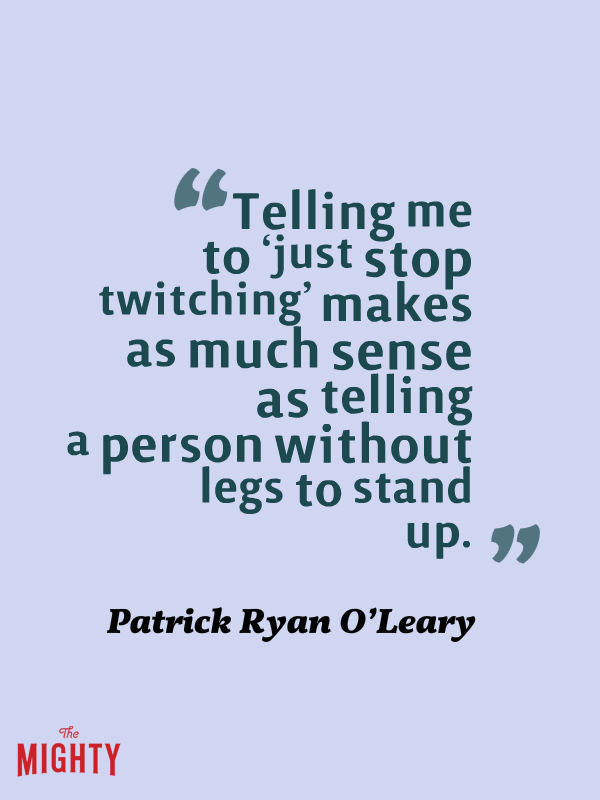14 Truths People With Tourette Syndrome Wish Others Understood
An estimated 174,000 children and teens in the U.S. live with Tourette syndrome, a disorder that affects both children and adults, according to Centers for Disease Control and Prevention. The neurological condition, characterized by quick, repetitive movements or vocalizations called “tics,” is sometimes misrepresented as uncontrollable swearing or yelling. But this isn’t always the case.
The Mighty wanted to hear from people who live with Tourette syndrome about what they wish others understood about their condition, so we reached out to the Tourette Association of America, an organization that supports people living with Tourette syndrome and tic disorders. The group asked its readers on Facebook to share one thing they wish others understood about living with Tourette syndrome.
Here’s what they had to say.
1. “Telling me to ‘just stop twitching’ makes as much sense as telling a person without legs to stand up.” — Patrick O.
2. “It’s very difficult to control and suppress the physical and vocal tics. When my son has to complete any sentence he’s started, he must finish his thought; he’s not being rude.” — Vicki B.
3. “Vocal tics can make it hard for your brain to relay to your mouth what you want to say and for your mouth to get it out.” — Christy S.
4. “Tourette syndrome is different in each person who has it, and you can’t assume one [person who has it] will behave like another.” — Helen L.
5. “There is so much more to Tourette syndrome than just tics. The conditions that often accompany Tourette syndrome can be just as much of a challenge.” — Michelle R.
6. “Just because someone with Tourette syndrome acts ‘normal’ one day doesn’t mean they are cured or faking the disorder. It’s cyclic, and [those who have it] can appear absolutely ‘normal’ on Monday and be a mess again by Friday.” — Helen L.
7. “Although [my son’s] tics keep him on the move, he isn’t trying to distract you or get into your space on purpose. He isn’t hyper; he literally cannot just stand still.” — Jennifer H.
8. “Having Tourette syndrome doesn’t [make someone] less intelligent.” — Vicki B.
9. “Tourette syndrome is one part of my children. [It’s] not the most important part.” — Amanda C.
10. “So much of Tourette syndrome is hidden but still very real.” — Jennifer B.
11. “My son’s tics don’t bother him and they don’t bother me. But you staring bothers us both.” — Christy V.
12. “You cannot ‘will’ it out of a person.” — Brooke A.
13. “Tourette syndrome is only a small part of what makes me, me. It doesn’t define me.” — Heather R.
14. “I wish people would see the real person, not the symptoms of their disorder.” — Judy B.
Editor’s Note: The first line of this piece was reworded to acknowledge that Tourette Syndrome exists in the adult population as well, and tics may even worsen with age, though stats are less documented than they are with children.
Founded in 1972, the Tourette Association of America is dedicated to making life better for all individuals affected by Tourette syndrome and tic disorders. The only nationwide organization serving this community, the association works to raise awareness, fund research and provide on-going support. The association directs a network of 32 Chapters and more than 55 support groups across the country. For more information on Tourette and Tic Disorders, call 1-888-4-TOURET, visit www.tourette.org on Facebook, Twitter and YouTube.





